Student Experience and Mentoring
If you'd like to contribute a piece about your experiences of student life or peer mentoring, please see the Submission and Pitching Guidelines tab and get in touch!
We hope that this new ‘Meet your Lecturers’ series of informal staff profiles below will allow you to get to know your lecturers within the Comparative Literature and Culture department and become a part of our close-knit community...
This past year has been incredibly difficult for everyone and we are aware that many first and second years have been unable to connect with their professors due to online learning. However, we hope that this new ‘Meet your lecturers’ series will allow you to get to know your lecturers within the Comparative Literature department and become a part of our close-knit community.
Our first interviewee is Angus Nicholls, Professor of Comparative Literature and German.
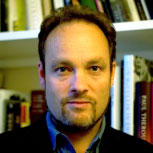
Introduce yourself, where are you from etc.
I was born in Canberra and raised in Melbourne; I spent some of my childhood in the United States (New York city) and Germany (Mainz, near Frankfurt).
What attracted you to Comparative literature?
It was a long and winding road. After high school, I enrolled for a five-year joint honours degree in law and humanities, only to drop law after two years in order to focus on literature as my major and political philosophy as my minor (in Australia the humanities degree allows you to choose your major and minor after the first year). After my BA I entered a PhD programme in Comparative Literature, because I wanted to use my German. At the time I was interested in European Romanticism, and Comp Lit allowed me to work with both English and German sources (and ancient Greek ones too, as my supervisor had training in classical philology).
What is your favourite period/author/culture?
My work focuses on the period circa 1750 to the present. My first book deals with European Romanticism and Goethe and my second is on a twentieth-century philosopher (Hans Blumenberg). Currently I am interested in how modern humanities disciplines were formed in the nineteenth century, so I am focusing on the period roughly 1850-1900: some of the key names there are Matthew Arnold, Charles Darwin and Wilhelm Dilthey.
There are too many favourite authors to name, but in terms of teaching, I always enjoy teaching Marx and Freud, as these thinkers tend to be interesting to students, and can also be used in other parts of a Comp Lit degree.
Most recently, I think Rachel Cusk is a very innovative novelist and I highly recommend her trilogy Outline-Transit-Kudos.
What are you currently working on?
I am currently writing a book called Literature and the Science of Comparison, which explores the origins of Comp Lit as a discipline in the nineteenth century.
What is your favourite snack?
Traditionally it is hot buttered toast with Vegemite (Vegemite = the Australian version of marmite). More recently, my wife invented a decadent lockdown snack that involves spreading digestive biscuits with both Nutella and peanut butter (I thank her daily for this invention).
If you could be any author who would you like to be and why?
Jacques Derrida: nice suits and good hair.
What do you like to do on your days off?
I like to cook, listen to music, watch films, wander around London or wherever else I might be. I like being in big cities most of all.
(Pre-Covid-19) what was your favourite place to work/study in?
The Senate House Library in London retains my affections because of the atmosphere there; the Warburg Library is also an interesting place to work because of its unique cataloging system.
What advice would you give to your undergraduate self?
Learn more languages.
Dogs or cats?
Dogs.
What tube line would you be?
Central
What London borough would you be?
Newham was the borough in London that I first got to know well, and even though I don't live there anymore, I regularly return for the food and groceries.
What cocktail would you be?
The cocktail that most closely resembles cold beer.
What is your favourite colour?
Blue.
What is your favourite song?
'Under the Milky Way' by The Church.
The ‘Meet your Lecturers’ series was inspired and conducted by Ben Ayaydin (BA 2021).
This past year has been incredibly difficult for everyone and we are aware that many first and second years have been unable to connect with their professors due to online learning. However, we hope that this new ‘Meet your lecturers’ series will allow you to get to know your lecturers within the Comparative Literature department and become a part of our close-knit community.
Our second lecturer of this series is Kiera Vaclavik, Professor of Comparative Literature and director of the Centre for Childhood Cultures.
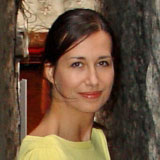
Introduce yourself, where are you from etc.
My name is Kiera Vaclavik and I was born very close to QM campus in Mile End – 15 miles away in Dartford. I consider myself European first and foremost, partly, but not exclusively, because I am a quarter Czech. My grandfather came to the UK, via Marseille, at the start of WWII and joined the Free Czech Army.
What attracted you to Comparative literature?
I studied French & English as an undergraduate and could see there were all these fascinating links between the materials I was looking at, but the way the programme ran, I was never really able to explore those links. I also studied a Russian novels in translation and really valued that opening up of horizons beyond my own linguistic competencies.
Favourite period/author/culture?
Dorothy Whipple is definitely up there. If you’ve never heard of her, look up Persephone Books. Their beautiful editions are a revelation and a joy to touch and read.
What are you currently working on?
I’m pulling together a project with a composer and the London Symphony Orchestra involving the creation of a new concert suite based on Through the Looking Glass and What Alice Found There as well as accompanying learning resources for schools and families. I’m also involved in a project on childhood, clothing and creativity (with a colleague at Sussex) and another project exploring storytelling for children in the context of COVID-19.
For this rest of these questions Kiera employed the help of her sons (picture below). If anyone knew her the best it would be them!
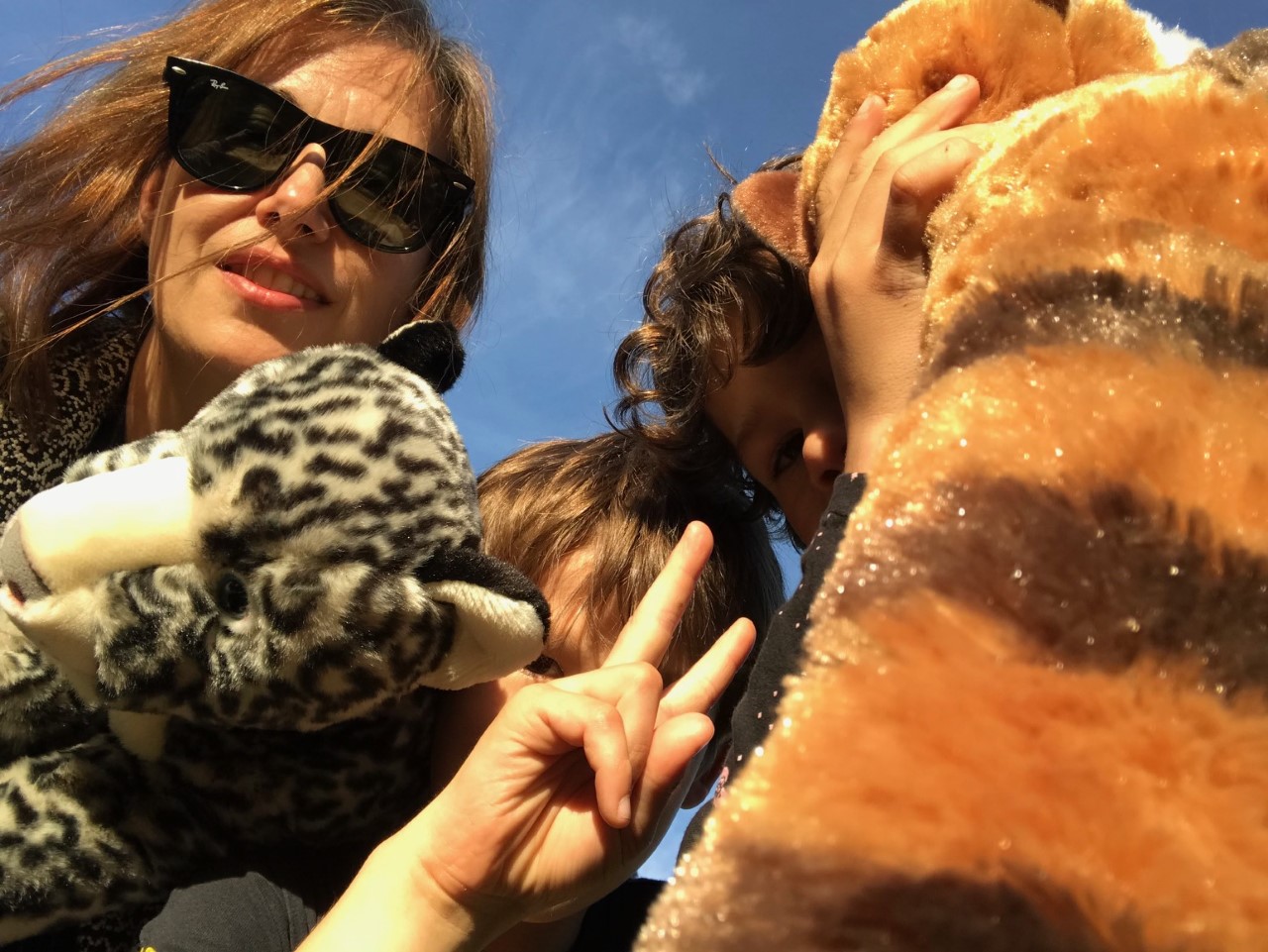
What’s your favourite snack?
Nuts / the ultimate sweet*.
*ultimate sweet = yummy sweet once tasted by mummy and Raphael sadly not Emil.
If you could be any author who would you like to be and why?
Roald Dahl.
What do you like to do on your days off?
Be with/play with my children (!!)
(Pre-covid) what was your favourite place to work/study in?
Library.
What advice would you give to your undergraduate self?
Go out while you can!
Dogs or cats?
Cats. (N.B. see The Ice Palace by Fitzgerald for a resonant exchange about classifying people as canine or feline. I studied this at high school. Mr Gould was a great teacher and I’m still in touch with him.)
If you could be a character from a text who would you be?
Bailey in A Dog’s Life.
Which fictional world/setting from a text would you like to live in?
His Dark Materials.
What tube line would you be?
Victoria.
What London borough would you be?
London Zoo (!!)
What cocktail would you be?
Cosmopolitan.
Favourite colour?
Yellow.
Would you rather fight 100 duck-sized horses or one horse-sized duck?
100 duck sized horses (for reasons of cuteness).
Describe the colour red to someone who is colour blind.
Dark pink. Bright. Dangerous.
Favourite song?
Shotgun.
If you had a time machine, would you travel to the future or back to the past?
Back to the past.
If someone wrote a biography about you, what do you think the title would be?
Mummy. Writing machine.
The ‘Meet your Lecturers’ series was inspired and conducted by Ben Ayaydin (BA 2021).
This past year has been incredibly difficult for everyone and we are aware that many first and second years have been unable to connect with their professors due to online learning. However, we hope that this new ‘Meet your Lecturers’ series will allow you to get to know your lecturers within the Comparative Literature department and become a part of our close-knit community.
Our third interviewee in this series is Shital Pravinchandra, Lecturer in Comparative Literature.
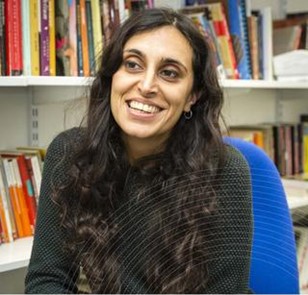
Introduce yourself, where are you from etc.
I'm Shital. Where I'm from is complicated! I was born in Maputo, Mozambique, as were my parents. Originally, though, my parents' parents had come there from India, from the Western state of Gujarat. When my parents were born, the city of Maputo was called Lourenço Marques, because it was a Portuguese colony. So I was Mozambiquan, and they were Portuguese. Aged two, I moved with my family to the Canary Islands in Spain (although geographically, the Canaries are considered to be in Africa and are in a different time zone from the rest of the country.) That's where I grew up, speaking Gujarati at home, English in the school they sent me to, and Spanish to everyone else, including my brother. I now carry a Spanish passport.
What attracted you to Comparative literature?
My background! I was always interested in the languages and literatures of the world, and comparative literature's way of looking at the world - from the point of view of various languages and places - just makes innate sense to me!
Favourite period/author/culture?
20th and 21st century. Authors? That's hard! Samuel Beckett, Julio Cortázar, Patricia Grace, Alice Munro, Sadat Hassan Manto and lately I've really been enjoying the work of Uday Prakash.
What are you currently working on?
My book. It's a cross between medical humanities and postcolonial studies. I'm really interested in the way new medical technologies are used to forge new strategies for colonisation (biocolonialism).
What’s your favourite snack?
Peanut butter (crunchy!).
And Khakhra (Gujarati cracker type thing).
What do you like to do on your days off?
Go out for long walks, take time off to be by the seaside, go back to Gran Canaria, cream teas (in the countryside), reading in bed.
(Pre-Covid) what was your favourite place to work/study in?
Home (bit tired of that now!) and the British Library.
What advice would you give to your undergraduate self?
Don't worry. A BA in French and Hindi isn't as weird as everyone thinks it is!
Dogs or cats?
Definitely cats but other people's dogs are ok.
If you could be a character from a text who would you be?
Piglet.
What tube line would you be?
Victoria - it goes to or near many of the places I lived in as an Undergrad, but also goes to South London, where I live now (not very near the tube but overground trains are great).
What London borough would you be?
Lambeth, where I live. But also because it had the highest number of Remain voters in the Brexit Referendum.
What cocktail would you be?
Don't drink them. Red wine.
Favourite colour?
Blue.
Describe the colour red to someone who is colour blind.
I wouldn't know how to begin! But read Patricia Grace's novel Baby No-Eyes and check out how Tawera describes colours to his sister. For example: "Grey is like putting your tongue out and licking a window, starting from the bottom and going right up to the top."
Favourite song?
Oof. Too many to name. Can I name albums? Any track from: Blood on the Tracks (Bob Dylan), Songs of Love and Hate (L. Cohen), the soundtrack to Dil Se (composed by A.R. Rahman), El Mal Querer (Rosalía), and loads of tracks by Radio Futura.
If you had a time machine, would you travel to the future or back to the past?
Past. Would rather not know what the future holds!
The ‘Meet your Lecturers’ series was inspired and conducted by Ben Ayaydin (BA 2021).
This past year has been incredibly difficult for everyone and we are aware that many first and second years have been unable to connect with their professors due to online learning. However, we hope that this new ‘Meet your Lecturers’ series will allow you to get to know your lecturers within the Comparative Literature department and become a part of our close-knit community.
Our fourth lecturer of this series is Rachel Bryant Davies, Strategic Lecturer in Comparative Literature and Culture, with the Institute of Humanities and Social Sciences.
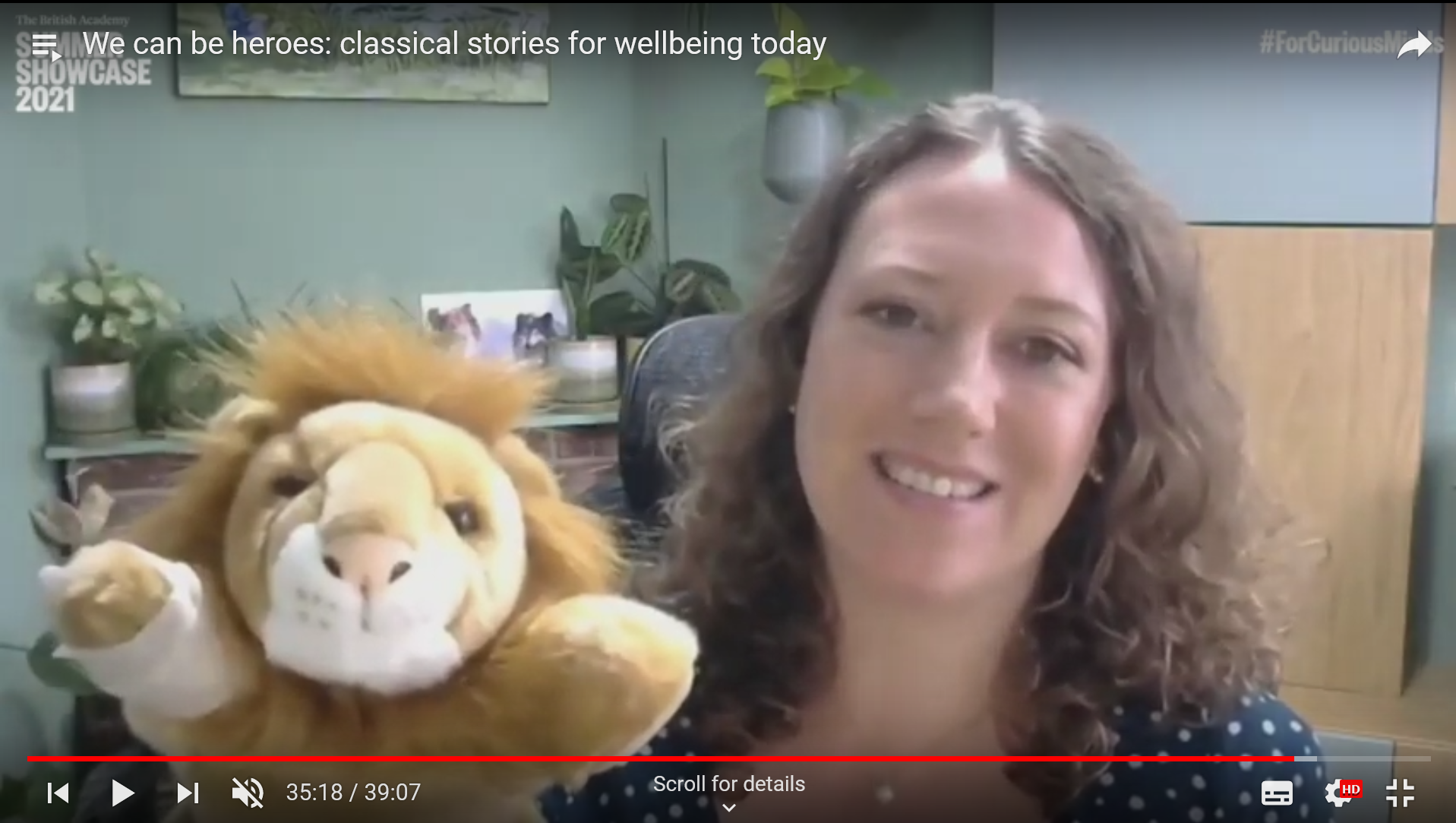
Introduce yourself, where are you from etc.
I grew up in the countryside, so the first time I visited QM's Mile End campus (pre-Covid) I was instantly drawn by the green spaces and canal-side as well as the buzz on campus. But it does mean I miss being among hills after a while! I'm half English, quarter Welsh and quarter Polish (one of my middle names is Wladyslawa). Probably the most interesting fact is that as a student I sang with my choir on the soundtracks for Shrek III and The Chronicles of Narnia: Prince Caspian, recorded at Abbey Road.
What attracted you to Comparative literature?
I didn't know the phrase 'comparative literature' then and didn't know it was a subject in its own right, but in hindsight I was drawn to comparing my AS and A-level English and Classics texts. I was studying Chinua Achebe's Things Fall Apart at the same time as Euripides' Bacchae, and discovered Wole Soyinka's The Bacchae of Euripides. Michael Ondaatje's The English Patient made me see Herodotus' Histories in a different light too. I studied Classics for my degree, and in the third year took options that encourages comparison between different periods of Greek and Roman literature, as well as an English topic on 'Tragedy' in all sorts of media and time-periods, and wrote a dissertation on how the figure of Prometheus changed in operatic libretti through the twentieth century.
Favourite period/author/culture?
I have spent most time studying the mid-eighteenth to early-twentieth centuries: this was the focus of my PhD, and I keep discovering more aspects or items I want to know more about! I enjoy the incredible variety of media and viewpoints, much of it preserved in originally ephemeral formats, and especially the often amazing illustrations. But I wouldn't say 'favourite' as often some of the content is offensive or difficult to process.
What are you currently working on?
My current book is about children's encounters with Greek and Roman myth, history and literature beyond formal school environments. So in alphabets, books of fables, and educational games in home nurseries, or toy-theatres and magic-lantern shows, and in magazines. I'm investigating how versions of antiquity were used to convey moral and social expectations, but also how educational content was packaged as leisure. Right now, I'm working on an essay about how two female Quaker writers presented Greek history in the late 18th/early 19th centuries, reflecting their religious and moral convictions. I'm also leading a project about how storytelling and ancient myth might be able to mitigate some of the educational, social and mental health impacts of COVID-19, as well as the marginalisation of children’s voices. So one of my most recent research tasks was practising using puppets for a children's storytelling event (see picture above!)
What’s your favourite snack?
Anything involving chocolate... and always with a pot of (chocolate flavoured) tea!
What do you like to do on your days off?
Walking the dogs (pre-Covid, in hilly countryside or by the sea to mark holidays); designing and making a garden; reading; playing board-games; craft and sewing (I can make bobbin lace but have recently taken up patchwork quilting). I can't wait to sing in a choir again!
(Pre-covid) what was your favourite place to work/study in?
Home for writing, but I love visiting archives and rare books rooms, especially when items are uncatalogued so you don't know what you'll find in a box, or when the colours are so bright you can't believe the item is over a hundred years old... It's especially satisfying to be able to put together -- very carefully -- an historical board-game or jigsaw (not least when everyone else is taking notes on a laptop and clearly wishing they could swap research tasks!).
What advice would you give to your undergraduate self?
Relax and get enough sleep!
Dogs or cats?
Dogs, definitely. I have two rough collies (one a Lassie look-alike, and one a black and white version) who love "contributing" to video calls. They have perfected the art of being loud enough to get bribed to behave, looking cute to camera, and then going back to sleep!
If you could be a character from a text who would you be?
I'm told a combination of the Mad Hatter and Cheshire Hat might be a good description. I've a soft spot for Eeyore though, since a relative gave me a hand-made soft toy Eeyore when I was little.
Which fictional world/setting from a text would you like to live in?
I like to be outdoors, so the Hundred Acres Wood in springtime or Rivendale. If I said the Great Library from the Thursday Next books, so I could hop between worlds, would that be cheating?!
What tube line would you be?
I used to take Victoria from King's Cross/British Library to choir rehearsals each week, so I know it quite well. I thought the name was suitable for someone who researches the nineteenth-century, but it's actually one of the modern lines!
What cocktail would you be?
I don't drink alcohol, so the answer would have to be chocolate orange tea. Or chocolate digestive tea. Or chocolate and rose white tea... (see above!).
Favourite colour?
Blues, greens, and shades in between.
Would you rather fight 100 duck-sized horses or one horse-sized duck?
One horse-sized duck!
Describe the colour red to someone who is colour blind.
Like the warmth of the sun on your face, or flames from a fire, or chilli on your tongue. But I'd struggle! I was given a brilliant book for Christmas called 'The Secret Lives of Colour' by Kassia St Clair which inspired me to get my paint box out again!
Favourite song?
Too many to choose: it depends on my mood and the time of day!
If you had a time machine, would you travel to the future or back to the past?
I'd definitely want to visit the past, but I suspect I'd find it hard not to peek into the future...
If someone wrote a biography about you, what do you think the title would be?
It's a dog's life?!
The ‘Meet your Lecturers’ series was inspired and conducted by Ben Ayaydin (BA 2021).
This past year has been incredibly difficult for everyone and we are aware that many first and second years have been unable to connect with their professors due to online learning. However, we hope that this new ‘Meet your Lecturers’ series will allow you to get to know your lecturers within the Comparative Literature department and become a part of our close-knit community.
Our fifth lecturer of this series is Will Mcmorran the Head of Comparative Literature and Professor in French and Comparative Literature.
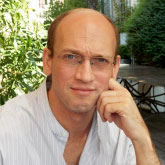
Introduce yourself, where are you from etc.
My name is Will, and I’m an alcoholic comparatist. I’m half-English, half-French, so all European. I grew up in Oxford, went to Bristol University to study English with French, then returned to Oxford for my masters in European Literature and stayed there to complete my doctorate, which was on early modern European comic fiction. I came to QMUL in 2001 and have been here ever since.
What attracted you to Comparative literature?
I think it always seemed natural to me, perhaps because of growing up with two cultures, and hearing about others too – my parents were both academics, and my mother taught French literature while my father taught Chinese literature and philosophy. It never really made sense to me to explore a single culture in isolation, and when I started my postgraduate studies I got increasingly annoyed at the way critics of English literature pretended the novel was an English invention and ignored centuries of prose fiction from around the world.
Favourite period/author?
I have to say the eighteenth century – it was the one I was always drawn to. It was the period before novels became all sensible and realist (and long), and a time of all sorts of literary and philosophical fun and games. Favourite authors would include Diderot (see below), Sterne, and Laclos (who wrote the brilliant Dangerous Liaisons). Although I work on the Marquis de Sade a lot, I can’t bring myself to say he’s a ‘favourite’ author. It implies affection, when I feel more wary than anything.
What are you currently working on?
I’m currently putting the finishing touches to a translation of Sade’s last published novel, The Marquise de Gange, which is coming out with Oxford World’s Classics in July. It’s a Gothic novel based on an infamous murder committed in the seventeenth century. It’s great fun.
What’s your favourite snack?
Chocolate-chip cookies.
If you could be any author who would you like to be and why?
Denis Diderot. Because he was brilliant at everything, a visionary, kind, and witty.
What do you like to do on your days off?
What days off?
(Pre-covid) what was your favourite place to work/study in?
The British Library.
What advice would you give to your undergraduate self?
Do the reading before the seminars. Otherwise you’ll be punished for the rest of your life with students who don’t do the reading before your seminars.
Dogs or cats?
Dogs. Cats are pure evil.
If you could be a character from a text who would you be?
Tom Jones or Iorek Byrnison.
Which fictional world/setting from a text would you like to live in?
His Dark Materials.
What tube line would you be?
Central.
Favourite song?
It’s one of these but I don’t know which one.
https://open.spotify.com/playlist/1uetTONX5TmjGHFBhyoAjU?si=vQhlLj4KRoK-WvC_aouUBA
If someone wrote a biography about you, what do you think the title would be?
Whatever Will Be, Will Be.
The ‘Meet your Lecturers’ series was inspired and conducted by Ben Ayaydin (BA 2021).